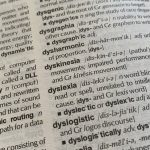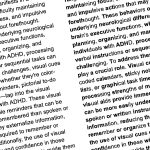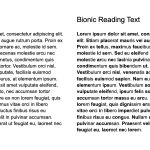Last Updated on 23/09/2023 by James Barron
Abstract
The Education, Health and Care Plan (EHCP) is a critical support mechanism for children and young people with special educational needs and disabilities (SEND) in the UK. This comprehensive guide delves into the EHCP’s definition, significance, and components. As a legally binding document, the EHCP delineates the educational, health, and social care needs of a child, ensuring they receive the specific support required. The guide discusses the EHCP application and approval process, criteria for qualification, and associated benefits, which range from personalised support to legal protection and funding considerations. Furthermore, it provides insights for parents navigating the EHCP process and highlights the significance of annual reviews, personal budgets, and dispute resolution mechanisms within the EHCP framework. A collaborative approach involving various professional roles ensures the EHCP’s effectiveness, with a strong emphasis on including the child’s voice in the process. Ultimately, the EHCP serves as a beacon of inclusive support, ensuring no child with SEND is marginalised.
Introduction
An Education, Health and Care Plan (EHCP) is a cornerstone of support for children and young people with special educational needs and disabilities (SEND) in the UK. This article seeks to elucidate the EHCP’s purpose, application process, criteria, and benefits.
EHCP Meaning
The EHCP is a legally binding document that lays out the education, health, and social care needs of a child or young person. It ensures the child receives the appropriate support for their unique needs in educational settings. Tailored to the individual, an EHCP provides a framework to ensure that different agencies work collaboratively to promote the child’s welfare.
EHC Plan
The term ‘EHC Plan’ is an abbreviation of Education, Health and Care Plan. It essentially refers to the same document and the tailored support it outlines for the child or young person in question. The EHC Plan serves children and young people aged 0-25 who have special educational needs and disabilities that cannot be met through the support generally available in educational settings.
What is an EHCP?
The EHCP provides detailed information about a child’s needs and outlines the specific support, resources, and interventions required to meet those needs. It might include provisions like one-on-one support in class, speech and language therapy, or specific learning resources. The EHCP is not just restricted to educational provisions; it also includes health and care needs that support educational outcomes.
EHCP Application
To secure an EHCP, a request must first be made for an EHC needs assessment. This request can be made by parents, guardians, the school, or even the young person if they are over 16. The local authority reviews this request and decides whether an assessment is necessary.
Upon approval, a multi-agency assessment process commences to understand the child’s needs comprehensively. This involves educational psychologists, therapists, health professionals, teachers, and parents.
Based on the assessment’s findings, the local authority then decides whether to issue an EHCP. If approved, the EHCP is drafted, and the child’s parents or guardians have a chance to review and provide input before it’s finalised.
Benefits for Child with EHCP in the UK
The benefits of an EHCP are manifold:
- Personalised Support: The plan is tailored specifically to the child’s needs, ensuring that they receive targeted support.
- Legal Protection: The EHCP is legally binding, meaning schools and institutions must adhere to the provisions outlined.
- Choice and Voice: Parents have a say in choosing the educational setting (mainstream or special school) they believe is best for their child. Moreover, the child’s views are taken into consideration.
- Transitional Support: The EHCP provides support from early years till young adulthood (up to age 25), ensuring smooth transitions between educational phases.
EHCP Funding
Upon the issuance of an EHCP, the local authority is responsible for ensuring the provisions outlined are financed. This often involves additional funding provided to the school or educational setting. The exact amount varies based on the child’s needs, but it is meant to cover all necessary interventions, resources, and support.
EHCP Criteria
Not every child with special educational needs will qualify for an EHCP. The primary criteria for receiving an EHCP include:
- The child has a learning difficulty or disability that makes it significantly harder for them to learn compared to others of the same age.
- Despite receiving relevant and purposeful SEN support, the child is not making expected progress.
It is imperative that thorough evidence backs both of these criteria, which is why the EHC needs assessment is so vital.
EHCP Guide for Parents
For parents navigating the EHCP process, the following steps are recommended:
- Research and Understand: Familiarise yourself with local authority processes and guidelines related to EHCP.
- Gather Evidence: Collect all relevant reports, assessments, and documentation that showcase your child’s needs.
- Collaboration: Work closely with your child’s school and other professionals involved in their care.
- Stay Informed: Attend EHCP meetings and stay actively involved in the assessment process.
- Seek Support: Consider joining support groups or organisations that can provide guidance, such as the National Autistic Society or IPSEA (Independent Provider of Special Education Advice).
EHCP Annual Reviews
The annual review of an Education, Health, and Care Plan (EHCP) is a critical and legally mandated process designed to ensure that the plan remains relevant and effective in addressing the child or young person’s special educational needs and disabilities (SEND). It offers an opportunity to evaluate the appropriateness of the support provided and to make any necessary amendments. Taking place at least once a year, this review focuses on the progress the child or young person has made towards achieving the outcomes specified in the EHCP. Moreover, it assesses whether these outcomes remain suitable or require modification. As part of the process, schools and educational institutions play a central role by gathering views, evidence, and feedback from everyone involved with the child—this includes teachers, therapists, parents, guardians, and importantly, the child or young person themselves. Following the gathering of this information, a meeting is convened to discuss and reflect on the past year. Any proposed changes to the EHCP, based on the insights and experiences of the previous year, are then forwarded to the local authority for consideration. It is also worth noting that during certain transition points, such as moving from primary to secondary school, these reviews take on additional significance as they help pave the way for the child’s next educational phase, ensuring that adequate support mechanisms are in place.
Personal Budgets
Within the framework of an Education, Health, and Care Plan (EHCP), a personal budget represents an innovative approach to empowering families to have a more direct say in the management and allocation of resources dedicated to meeting a child or young person’s special educational needs and disabilities (SEND). A personal budget is an amount of money identified by the local authority to deliver specific elements of the EHCP. This budget can be provided to families in several ways: as a direct payment, an arrangement where the local authority holds and manages the funds, or a third-party arrangement where an organisation manages the funds on behalf of the family. The aim of the personal budget is to offer families greater choice and control over the support their child receives, allowing for a more tailored approach to fulfilling the provisions outlined in the EHCP. It can cover a range of services, including education, health, and social care interventions. However, it’s crucial for families to understand that while they have discretion over the budget, the chosen provisions must align with the agreed outcomes in the EHCP. To ensure transparency and effectiveness, the use of the budget is regularly monitored and must be accounted for, demonstrating that the funds directly benefit and support the child’s or young person’s needs as detailed in the plan.
Dispute Resolution and Mediation
Navigating the complexities of the Education, Health, and Care Plan (EHCP) can sometimes lead to disagreements between families and local authorities regarding the child or young person’s special educational needs and disabilities (SEND) provisions. To address this, the EHCP framework includes specific avenues for dispute resolution and mediation. Mediation is an informal, yet structured process where an impartial third party (the mediator) assists both sides in reaching a mutually agreeable solution. Before families can appeal a local authority’s decision about certain aspects of the EHCP to the Special Educational Needs and Disability Tribunal, they must first consider mediation. This requirement ensures that all parties attempt to resolve disputes amicably and collaboratively. If mediation doesn’t lead to a resolution, or if families choose to bypass it (except in cases of school placement or the EHCP’s health and social care sections), they can proceed to the tribunal appeal. Importantly, local authorities have a duty to provide information on local mediation services, ensuring families are well-informed about their rights and options. By offering both mediation and avenues for formal appeals, the EHCP framework aims to balance the need for collaborative, solution-oriented dialogue with the rights of families to contest decisions they believe don’t serve their child’s best interests.
Roles involved in an EHCP
The creation, implementation, and review of an Education, Health, and Care Plan (EHCP) necessitates a multidisciplinary approach, drawing on the expertise of various professionals to ensure a holistic and effective plan for a child or young person with special educational needs and disabilities (SEND). At the heart of this collaboration are educational psychologists who assess the child’s learning capabilities, emotional and social development, and recommend suitable interventions. Special Educational Needs Coordinators (SENCO’s) in schools play a pivotal role in identifying needs, coordinating support, and liaising between families, schools, and local authorities. Health professionals, including paediatricians, speech and language therapists, and occupational therapists, evaluate and address the child’s health and developmental needs, ensuring that these align with the educational provisions in the plan. Social workers provide insights into the child’s home environment and any additional support that might be necessary to promote well-being and educational achievement. Additionally, teachers and support staff have a day-to-day understanding of the child’s progress and challenges, and their input is invaluable in tailoring the EHCP to the child’s evolving needs. By pooling the knowledge and expertise of these professionals, the EHCP is designed to provide a comprehensive, tailored, and effective strategy to support the child’s education, health, and social care needs.
The Voice of the Child
Central to the ethos and success of an Education, Health, and Care Plan (EHCP) is the acknowledgment and incorporation of the voice of the child or young person. Recognising that each individual has unique insights into their experiences, challenges, and aspirations, the EHCP process is built to be not just about the child, but actively involve them. This means ensuring that children and young people have opportunities to express their views, wishes, and feelings about their education, health, and care provisions. Their input can be communicated directly in meetings, indirectly through the use of advocacy services, or with the assistance of tools and methodologies tailored to their communication needs, like drawings, storyboards, or role-playing. In practice, this might involve discussing with them what kind of support they find most beneficial, or which educational setting they feel most comfortable in. Not only does this foster a sense of agency and empowerment in the child, but it also ensures that the resulting EHCP is genuinely reflective of their needs and aspirations. By giving weight to the voice of the child, the EHCP process reaffirms the fundamental principle that children and young people with special educational needs and disabilities (SEND) are active participants in their journey, not just passive recipients of care and support.
Conclusion
The EHCP is an invaluable tool in ensuring children with SEND receive the holistic support they require. By fostering inter-agency collaboration and providing legally mandated provisions, the EHCP helps to level the playing field for those who might otherwise be left behind.
Further reading
Special Needs and Legal Entitlement: The Essential Guide to Getting out of the Maze by Melinda Nettleton and John Friel.
An invaluable guide for parents and professionals that details the legal rights of children with special needs, including advice on EHCPs and securing the right support.
A Guide to Mental Health Issues in Girls and Young Women on the Autism Spectrum: Diagnosis, Intervention and Family Support by Judy Eaton.
This book provides a focused look into the mental health issues faced by girls and young women with autism, offering insights that can be particularly useful when developing a tailored EHCP.
Special Educational Needs: A Guide for Inclusive Practice by Lindsay Peer and Gavin Reid.
This comprehensive guide offers insights into the various aspects of SEND, offering practical advice, strategies, and support for educators, parents, and professionals involved in inclusive education. It addresses the procedures, challenges, and best practices that can be beneficial when considering EHCPs.
Council for Disabled Children (CDC)
The CDC is the umbrella body for the disabled children’s sector, bringing together professionals, practitioners, and parents. Their website offers resources and information on EHCPs and SEND.
Website URL: https://councilfordisabledchildren.org.uk/
IPSEA (Independent Provider of Special Education Advice)
IPSEA provides free, legally based advice to families who have children with special educational needs. Their website has a plethora of resources related to EHCPs and the SEND framework.
Website URL: https://www.ipsea.org.uk/
SEND: guide for parents and carers – GOV.UK
This is an official guide from the UK government detailing information about the support system for children and young people with SEND. It’s a must-visit for understanding EHCPs from a legal and procedural standpoint.
Website URL: https://www.gov.uk/government/publications/send-guide-for-parents-and-carers
Author Profile
Latest entries
 Resources2024.01.25Animals That Start With The Letter N
Resources2024.01.25Animals That Start With The Letter N Bionic Reading2023.09.22Bionic Reading for Dyslexia: A Potential Bridge to Enhanced Comprehension
Bionic Reading2023.09.22Bionic Reading for Dyslexia: A Potential Bridge to Enhanced Comprehension Bionic Reading2023.09.21Bionic Reading for ADHD: Harnessing the Power of Visual Cues to Aid Focus and Comprehension
Bionic Reading2023.09.21Bionic Reading for ADHD: Harnessing the Power of Visual Cues to Aid Focus and Comprehension Bionic Reading2023.09.20Bionic Reading Method
Bionic Reading2023.09.20Bionic Reading Method




